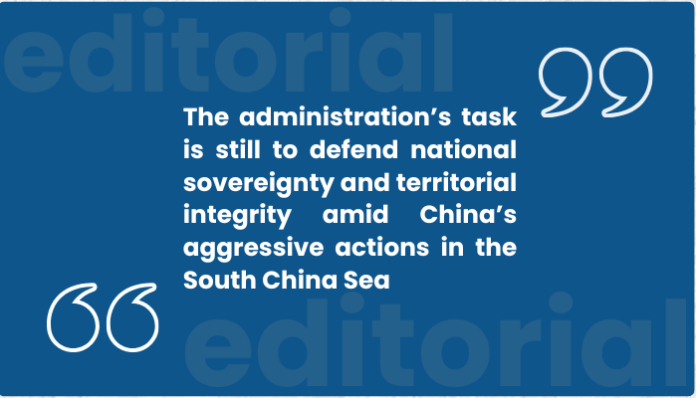With the intense partisan politics that marked the recent midterm elections for national and local positions last May 12, the Marcos Jr. administration can now turn its attention to both pressing domestic and international concerns.
In so far as our foreign policy is concerned, the administration’s task is still to defend national sovereignty and territorial integrity amid China’s aggressive actions in the South China Sea.
To do this, the Philippine is now engaged in an accelerated effort to modernize our armed forces to serve as a deterrence against any foreign incursions in the West Philippine Sea where we have our Exclusive Economic Zone.
Our military modernization program has been on track since the 1990s because we cannot rely solely on our Military Defense Treaty with the United States.
Neither can we give top priority to our defense requirements and acquire state-of-the-art aircraft, warships, and advanced weapons systems at this time because of the huge costs.
We have to allot enough funds to infrastructure, education and health, among others, to fight poverty and improve the quality of life of Filipinos. This means that we should not focus solely on acquiring military hardware.
Equally important, from where we sit is forging close defense and security ties with other countries that also depend on the South China Sea for their foreign trade and are committed to uphold international law.
The latest development along this direction is the Visiting Forces Agreement that Defense Secretary Gilberto Teodoro signed with New Zealand in April.
This follows the reciprocal access agreement we signed with Japan in 2024, and the VFA with Australia in 2012, and another VFA with the US in 1999.
Also recently, Defense Secretary Teodoro and his German counterpart Boris Pistorius signed an “arrangement concerning defense cooperation” in Berlin. The agreement expands cooperation to include cybersecurity, defense armament and logistics, and United Nations peacekeeping.
The recent bilateral defense agreement with Germany builds on the 1974 Administrative Agreement concerning the training of Armed Forces of the Philippines personnel in Germany, one of the longest defense cooperation frameworks of the Philippines with another country.
In September last year, two German warships went on a rare transit in the Indo-Pacific to demonstrate Berlin’s commitment to freedom of navigation.
We view the Marcos Jr. administration’s initiatives to forge alliances with friendly countries as positive developments that would strengthen our position in the longstanding dispute with China in the contested West Philippine Sea.
We should conclude similar defense agreements with other countries even as we exert more efforts to modernize our own military in the years ahead.








